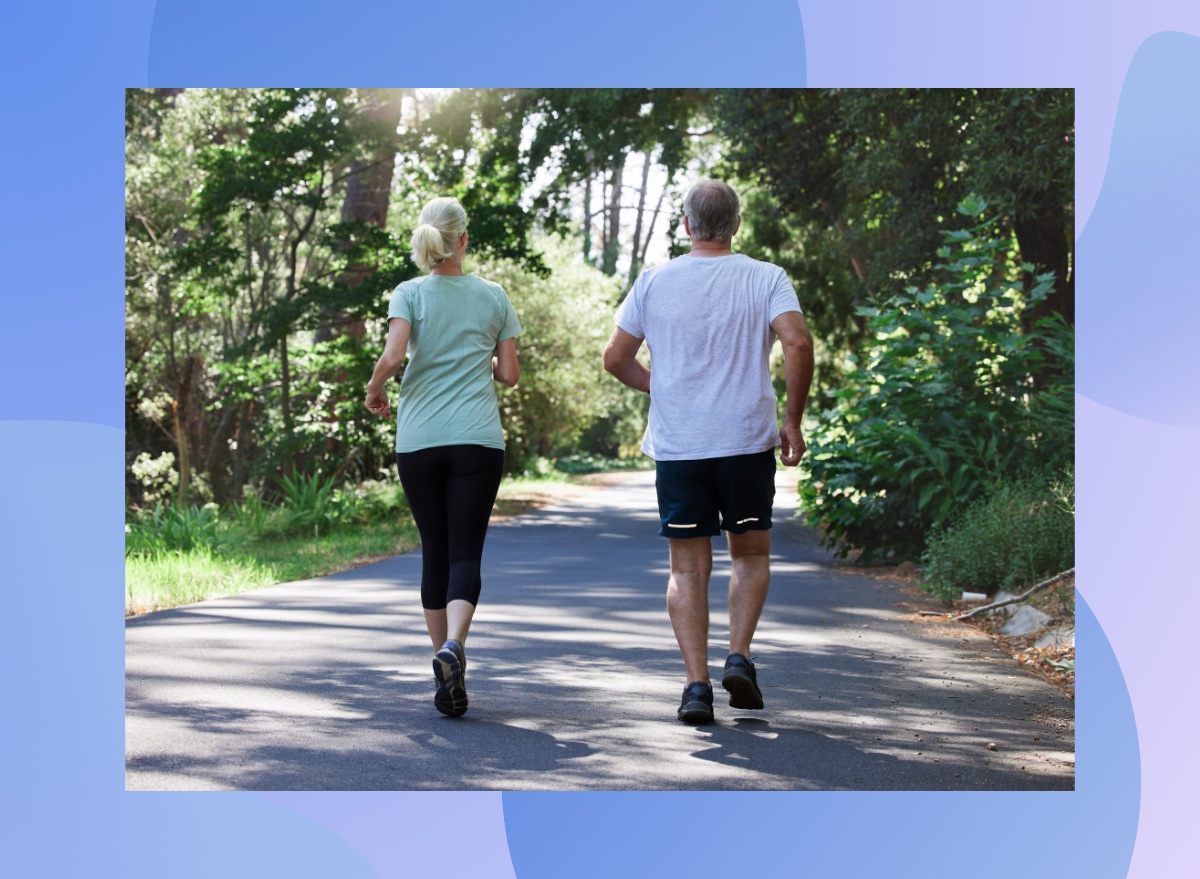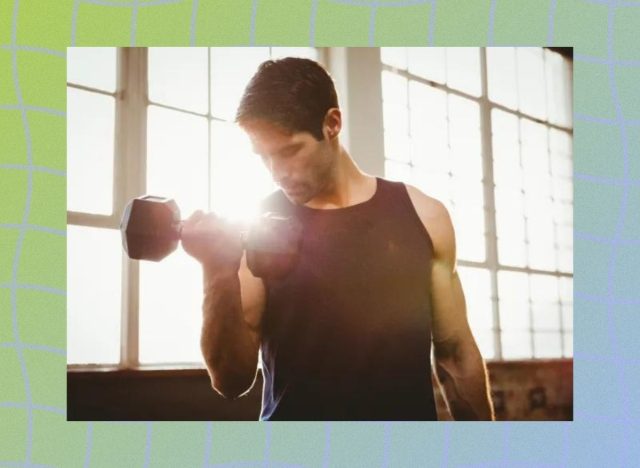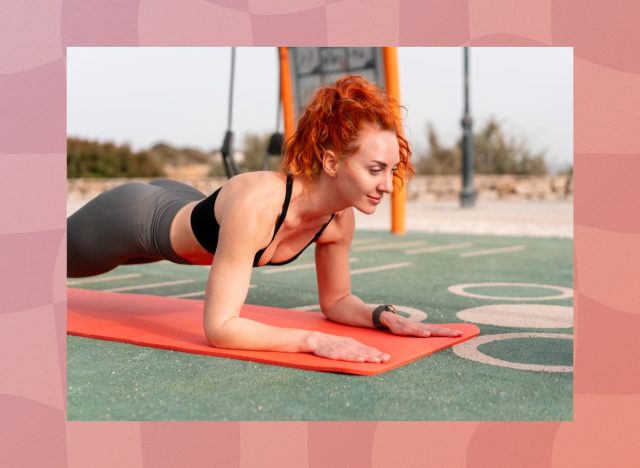Secret Exercise Tricks for a Better Body After 40, Say Experts

What do Jennifer Lopez, Dwayne Johnson, and Madonna have in common (besides being incredibly talented)? They're all living proof that you can hit your fitness goals at any age.
You might assume fitness is a young person's game, but you'd be (mostly) wrong. "In general, men and women peak in strength between [their] 20s through 30s and gradually decline afterwards," says Jamie Costello, MSc, a certified personal trainer and vice president of sales and fitness for Pritikin Longevity Center. This is a natural part of the aging process, but can be exacerbated by health conditions, lack of exercise, and other factors.
Despite this, older adults can absolutely be fit and strong. "In fact, studies show older adults can still enjoy gains in strength and mobility well into their 80's with consistent exercise habits," Costello says. But there are some things that are important for people over 40 to keep in mind to make sure they get the most out of their fitness routines—without injuring themselves in the process. Here are some exercise secrets to looking great as you age, straight from trainers. And for more amazing exercise tips, don't miss the Secret Little Exercise Tricks for Getting a Lean Body Fast, Say Experts.
Warm Up with Mobility Exercises

It's simply a fact that our bodies naturally lose some muscle and bone mass as we age—which, along with changes to our joints, affect our mobility. Costello says you can counteract this with regular mobility training, which helps maintain balance and prevent injury. "Most people think of static stretching to improve flexibility but you want to incorporate movement, balance and coordination to maximize the benefits," he recommends.
One of his favorite moves (especially for people who sit for long periods of the day) is the tabletop bridge, which he says opens up the shoulders and increases glute activation. Spend five to 10 minutes warming up with mobility exercises, he says, and you'll be primed for the rest of your workout. And for more life-changing exercise advice, see here for the Secret Exercise Tricks for Keeping Your Weight Down for Good.
Prioritize Resistance Training

Strength or resistance training is important at practically every age, as it's crucial for keeping your bones and muscles strong. But as you age, you naturally start to lose muscle and bone mass, which can affect your posture and overall health, says Jack McNamara, NASM-CPT, CSCS, a tutor at Train Fitness. That's why he says it's critical to incorporate strength training into your routine as you age. "By exercising regularly with weights, resistance bands or taking part in strength-focused activities like Pilates classes, we can build more muscle, improve our bone health, and help strengthen our core—all of which will help keep you the most posture-perfect of your peers."
Target Your Core

Costello says that most people neglect this muscle group as they age. "While plenty of people may do sit-ups or crunches, the posterior chain and stabilizers of the core are missed," he says. A strong core is key to better posture and overall strength, so it's critical to take good care of it. Costello recommends planks or bird-dogs for working your entire core and improving balance and stability at the same time. Want more core-strengthening tips? Check out The Secret Exercise Tip for a Much Stronger Core.
Avoid High-Impact Exercises

You might think that getting fit requires tons of HIIT boot camps or regular marathon training. But those activities can be rough on your knees and other joints, which naturally get stiffer as we age. "Avoid high impact exercises and limit the knees to a pain free range of motion," says Costello. Thankfully, you can get great exercise from lower-impact activities like swimming, cycling, or walking, so you can meet your fitness goals without blowing out your knees.
However, if you're experiencing chronic joint pain that makes any kind of exercise difficult, seek out a specialist. "I recommend a posture assessment from a corrective exercise specialist (CES) to create a customized exercise prescription to improve functionality," Costello recommends. And for inspiration for moving more every day, see here for What Happens to Your Body When You Walk More, Says Science.








